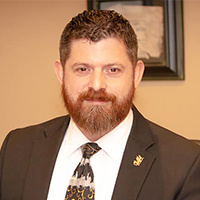University Place Criminal Lawyer, Washington, page 5
Sponsored Law Firm
-
 x
x

Click For More Info:
-
Schroader Law, PLLC
1105 Tacoma Ave S Tacoma, WA 98402» view mapCriminal Defense Exceptional Legal Service
Schroader Law, PLLC offers superior service from start to finish. Attorney Schroader is a knowledgeable lawyer offering comprehensive legal advice with realistic expectations.
800-916-9671
Lance M. Hester
Criminal, Insurance, Personal Injury, Malpractice, Mass Torts
Status: In Good Standing
James Barry Feldman
Federal, Juvenile Law, White Collar Crime, Criminal, Administrative Law
Status: In Good Standing
Michael Austin Stewart
Landlord-Tenant, Immigration, Criminal, Personal Injury
Status: In Good Standing Licensed: 30 Years
Casey Matthew Arbenz
Criminal, Insurance, Personal Injury, Malpractice, Mass Torts
Status: In Good Standing Licensed: 16 Years
Montell E. Hester
Family Law, Criminal, Insurance, Personal Injury, Malpractice
Status: In Good Standing Licensed: 57 Years
 Dennis Schroader Tacoma, WA
Dennis Schroader Tacoma, WA Practice AreasExpertise
Practice AreasExpertise
